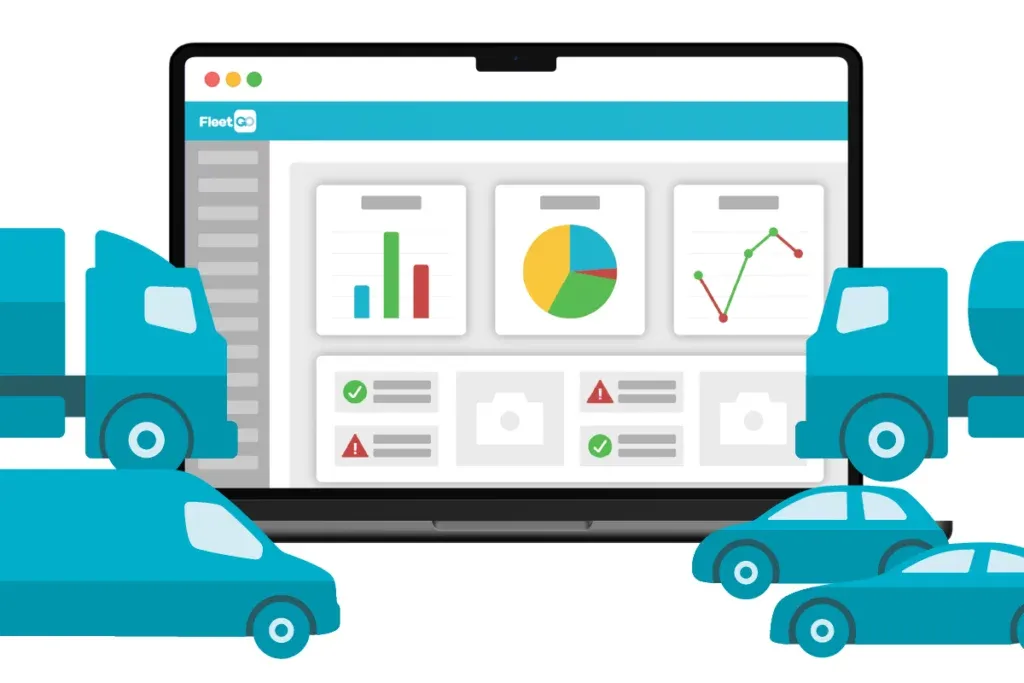Fleet management is the process of organising, tracking and optimising a fleet operation within a company. Using various equipment and software, fleet managers can gain real-time visibility into their fleet operation. With this information, it is possible to deliver a greater level of satisfaction to both customers and drivers, as well as reduce overall costs.
With advances in technology and software capabilities, fleet managers today enjoy unprecedented levels of information in real time. It is possible to collect information remotely on everything from the current location of a vehicle to the pressure in its tyres. This level of visibility makes it easier for an operation to react to unforeseen circumstances, such as road closures, breakdowns, driver absences and more.
For the company, fleet management provides significant financial benefits, both in cost reductions and increased revenue for the organisation.
What Is Fleet Management?
For organisations that run commercial vehicles as part of their business, there are many things to consider over just using a car for personal reasons. Those considerations only become more important as a fleet grows, and the financial cost of inefficiencies in a fleet management system can start to become quite significant.

At its most basic level, fleet management systems keep track of things like vehicle maintenance schedules, driver rotas and things of that nature. In the past, this might have been handled by someone updating a written diary with the relevant information. These days, software apps have taken over such tasks, and they’ve even been able to automate a number of things, saving time and resources.
Examples of features that are commonly found in fleet management solutions include automatic route optimisation that can be updated minute-to-minute, as well as notifications for things like a vehicle tyre running low on pressure and schedule checking, preventing vehicles or drivers from being booked for a job when they are unavailable. In the past, the person handling bookings would need to have this information at hand to avoid schedule clashes, but with software, the system will automatically prevent it.
What Are the Benefits of Fleet Management?
On the broadest scale, the benefits of good fleet management systems are increased profits. This happens for a number of reasons, however. Fleet management can reduce the costs of operating a fleet through things like improving fuel economy across the operation. It can also improve customer satisfaction, leading to more sales. A well-run operation benefits drivers as well, making it easier to retain them.
One benefit that is a little harder to quantify is the visibility of data provided by modern fleet management solutions. This visibility provides a range of advantages, such as being able to see the state of the operation in real time. It also makes it easier to get the necessary information out of the system for things like audits and vehicle inspections. Finally, all of the information collected by these systems can better inform managers and other decision-makers when deliberating over potential changes to the operation.
The software used for fleet management is increasingly becoming cloud-based “software as a service” models. This adds another level of benefit to an organisation, as it will no longer need to worry about paying for and maintaining expensive software. Instead, a fleet management company is engaged, and they handle the maintenance and software features.
What Operational Aspects Does Fleet Management Cover?
Generally, fleet management is responsible for the following areas of a fleet operation:
Fleet tracking
Fleet tracking is an aspect of fleet management that serves a variety of purposes. Knowing the locations of all vehicles in a fleet at all times allows an organisation to react more quickly to changes. It also helps to keep drivers and vehicles safe, as the fleet manager will know if a vehicle has broken down, been involved in an accident or has been stolen.
Driver safety
Fleet management tools can improve driver safety, even when the source of danger is the driver themselves. Automatic notifications about driver hours, tyre pressure and other things that can represent a risk to the driver or vehicle can be sent to the relevant parties immediately.
Driver retention
Having a shortage of drivers is a major problem for fleet operations, and it has become increasingly difficult to find new drivers in the current economy. Good fleet management results in better workplace conditions, so drivers feel like they are well looked after and proud to be a part of a professional organisation. All of this leads to better driver retention.
Compliance
Operating vehicles for commercial purposes involves meeting a lot of laws and regulations that wouldn’t apply to a private vehicle user. Fleet management solutions help to ensure an operation remains in compliance with any relevant laws. For example, notifications about driver hours, maintenance schedules and other important events can be automatically sent.
Vehicle acquisition
The information collected by a good fleet management system can be used to accurately forecast how many vehicles will be needed in the future, as well as what type of vehicles are needed. This information is invaluable when it comes to vehicle acquisition, as organisations must find a balance between having enough vehicles to meet demand without wasting money on vehicles that will be idle most of the time.
Conclusion
Fleet management solutions can significantly improve an operation when used to their full potential, but the adoption of fleet management software on any level will often have noticeable benefits. When used in conjunction with remote sensors and the wealth of information a vehicle can produce for analysis, a fleet manager can build an extremely detailed picture of their operations, allowing for better decision-making and a more fluid, adaptable fleet.
Disclaimer
This content is provided for informational purposes only and is not meant to be an endorsement or representation by FleetGO.com or any other party. This information may contain inaccuracies or typographical errors, despite our efforts to ensure accuracy. FleetGO.com accepts no responsibility or liability for any errors or omissions, and is not responsible for the contents of any linked website or any link contained in a linked website. Please refer to our full disclaimer for more details.


